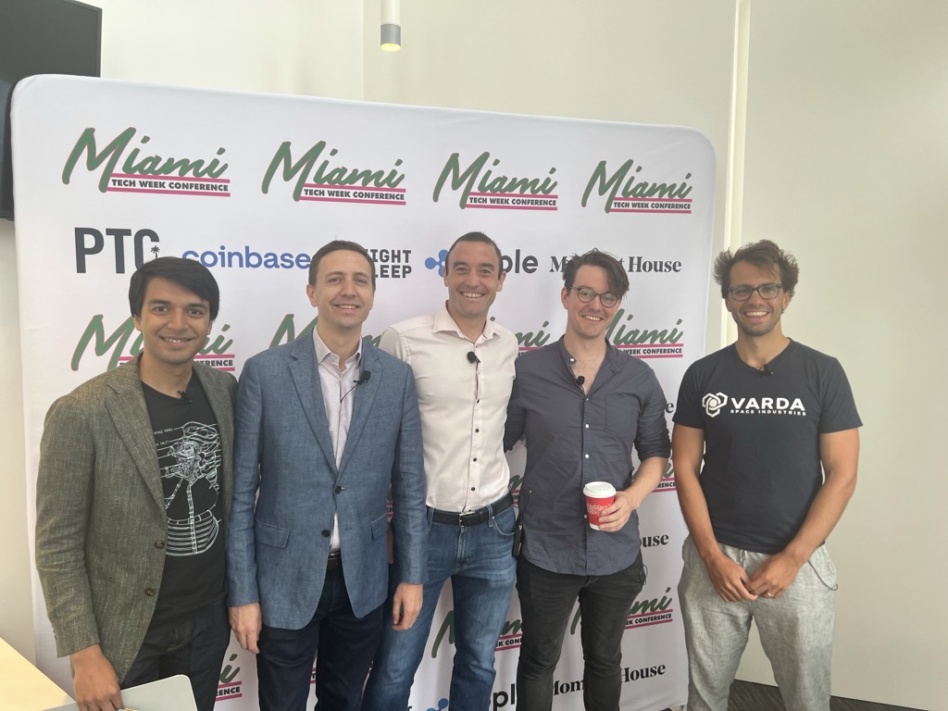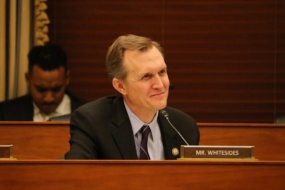On Friday, Payload CEO Mo Islam took the stage at Miami Tech Week to moderate “Earth’s Future With Space.” Bright and early at 9:30, Mo kicked off the 45-min space industry panel with:
- John Gedmark, CEO of Astranis
- Chris Power, CEO of Hadrian
- Delian Asparouhov, cofounder of Varda
- Kevin Weil, president of Planet (NYSE:PL)
At a high level, the panelists covered business models of each space company, new products being brought to market (and orbit), dual-use technologies, supply chain challenges, working with the US military, new models of aerospace manufacturing and design, and the conflict in Eastern Europe.
- Selling to the DoD: Astranis recently announced that it was awarded a multiple-award indefinite-delivery/indefinite-quantity contract to compete for orders under a $950M ceiling for the USAF’s ABMS program. In Miami, Gedmark expanded on earlier comments about American leadership in space.
- New manufacturing models: In March, Hadrian raised $90M to continue its buildout of vertically integrated, software-defined, aerospace parts factories. Last October, Varda booked a Falcon 9 rideshare to launch its first microgravity factory. “It’s a huge defensive and strategic advantage if you have a large commercial manufacturing supply chain operating in [LEO,]” Asparouhov said on Friday’s panel.
- Recruiting: Power lamented that the industry is competing with the consumer-facing tech companies…and often losing: “We’ve created layers of abstraction where now our best talent is optimizing ad clicks or trading pictures of cats.”





